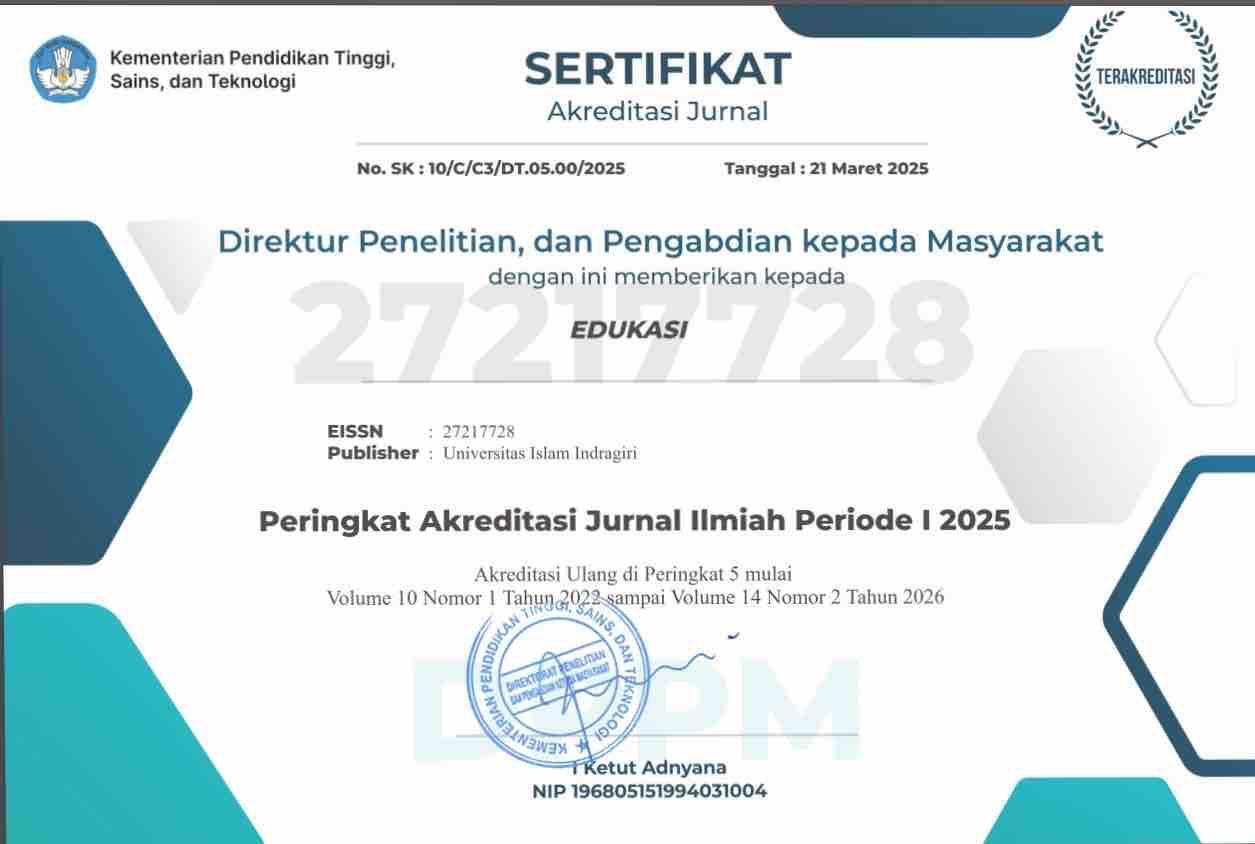Analisis Manajemen Kesiswaan dalam Meningkatkan Kedisiplinan Siswa di MA Nurul Huda Sungai Luar"
DOI:
https://doi.org/10.61672/judek.v12i2.2838Keywords:
Manajemen Kesiswaan, Kedisiplinan Siswa, Madrasah AliyahAbstract
This study aims to analyze the influence of student management on improving student discipline at MA Nurul Huda Sungai Luar. Effective student management is viewed as a key factor in creating a conducive learning environment and enhancing student discipline. This research employs a quantitative approach with a survey method. The research sample consists of 78 students selected using a saturated sampling technique. Data were collected through questionnaires, observations, and documentation. Data analysis utilized descriptive statistics and simple linear regression.
The results indicate that student management has a positive and significant influence on student discipline (β = 0.685, p < 0.001), with 47.6% of the variation in student discipline explained by student management. The planning component in student management shows the best performance (mean = 3.89), followed by implementation (mean = 3.72) and evaluation (mean = 3.64). The aspect of student attendance has the highest score in discipline (mean = 4.12), while participation in school activities shows the lowest score (mean = 3.55).
This study identifies several areas requiring improvement, including the gap between program planning and implementation, as well as the need for specific strategies to increase student participation in school activities. Recommendations include strengthening program implementation, enhancing the evaluation system, optimizing student participation, and developing peer mentoring programs.
Downloads
References
Anggraeni, D., & Subardi, S. (2020). Pengaruh Program Pembinaan Kesiswaan terhadap Karakter Disiplin Siswa. Jurnal Administrasi Pendidikan, 27(1)
Arikunto, S. (2009). Dasar-Dasar Evaluasi Pendidikan. Jakarta: Bumi Aksara.
Canter, L., & Canter, M. (2001). Assertive discipline: Positive behavior management for today's classroom. Los Angeles: Canter & Associates.
Charles, C.M. (2005). Building Classroom Discipline (8th ed.). Boston: Pearson Education.
Imron, A. (2011). Manajemen Peserta Didik Berbasis Sekolah. Jakarta: Bumi Aksara.
Knezevich, S. J. (1984). Administration of Public Education. New York: Harper and Row Publishers.
Mulyasa, E. (2007). Manajemen Berbasis Sekolah. Bandung: Remaja Rosdakarya.
Pintrich, P. R., Smith, D. A., Garcia, T., & McKeachie, W. J. (1991). A manual for the use of the Motivated Strategies for Learning Questionnaire (MSLQ). Ann Arbor: University of Michigan, National Center for Research to Improve Postsecondary Teaching and Learning.
Ramadhan, F., Suherman, A., & Supriyadi, T. (2021). Implementasi Manajemen Kesiswaan Partisipatif dalam Meningkatkan Kedisiplinan Siswa. Jurnal Manajemen Pendidikan, 10(1)
Riswanto, A., & Aryani, S. (2017). Learning motivation and student achievement: Description analysis and relationships both. COUNS-EDU: The International Journal of Counseling and Education, 2(1),
Saifullah, S., & Sukendar, S. (2019). Pengaruh Manajemen Kesiswaan terhadap Kedisiplinan Belajar Peserta Didik. Jurnal Pendidikan Islam, 8(2),
Santrock, J. W. (2011). Educational Psychology (5th ed.). New York: McGraw-Hill.
Schunk, D. H., Meece, J. L., & Pintrich, P. R. (2014). Motivation in education: Theory, research, and applications (4th ed.). Pearson.
Tu'u, T. (2004). Peran Disiplin pada Perilaku dan Prestasi Siswa. Jakarta: Grasindo
.
Wigfield, A., & Eccles, J. S. (2000). Expectancy–value theory of achievement motivation. Contemporary Educational Psychology, 25(1)
Zimmerman, B. J. (2000). Self-efficacy: An essential motive to learn. Contemporary Educational Psychology, 25(1),








